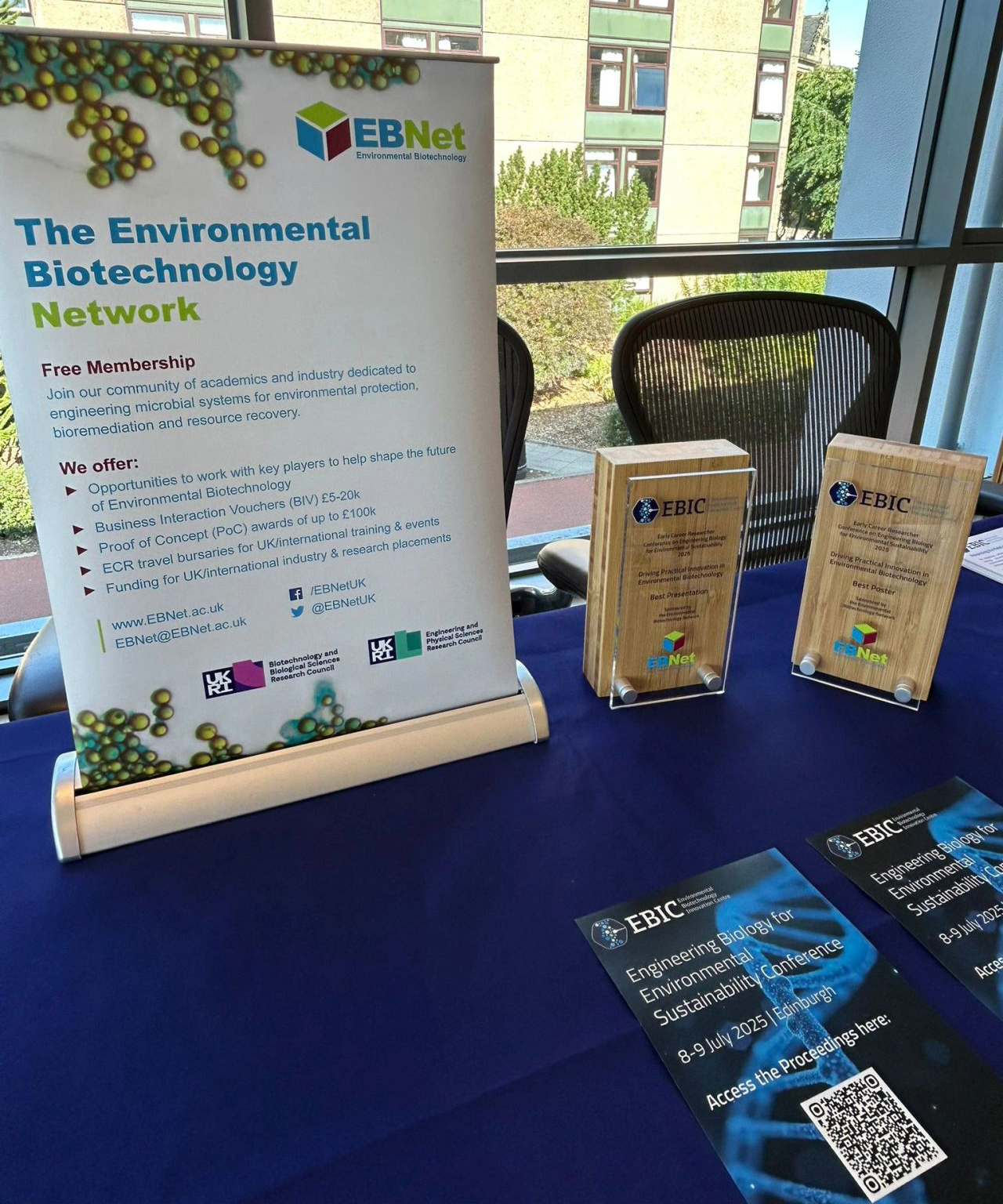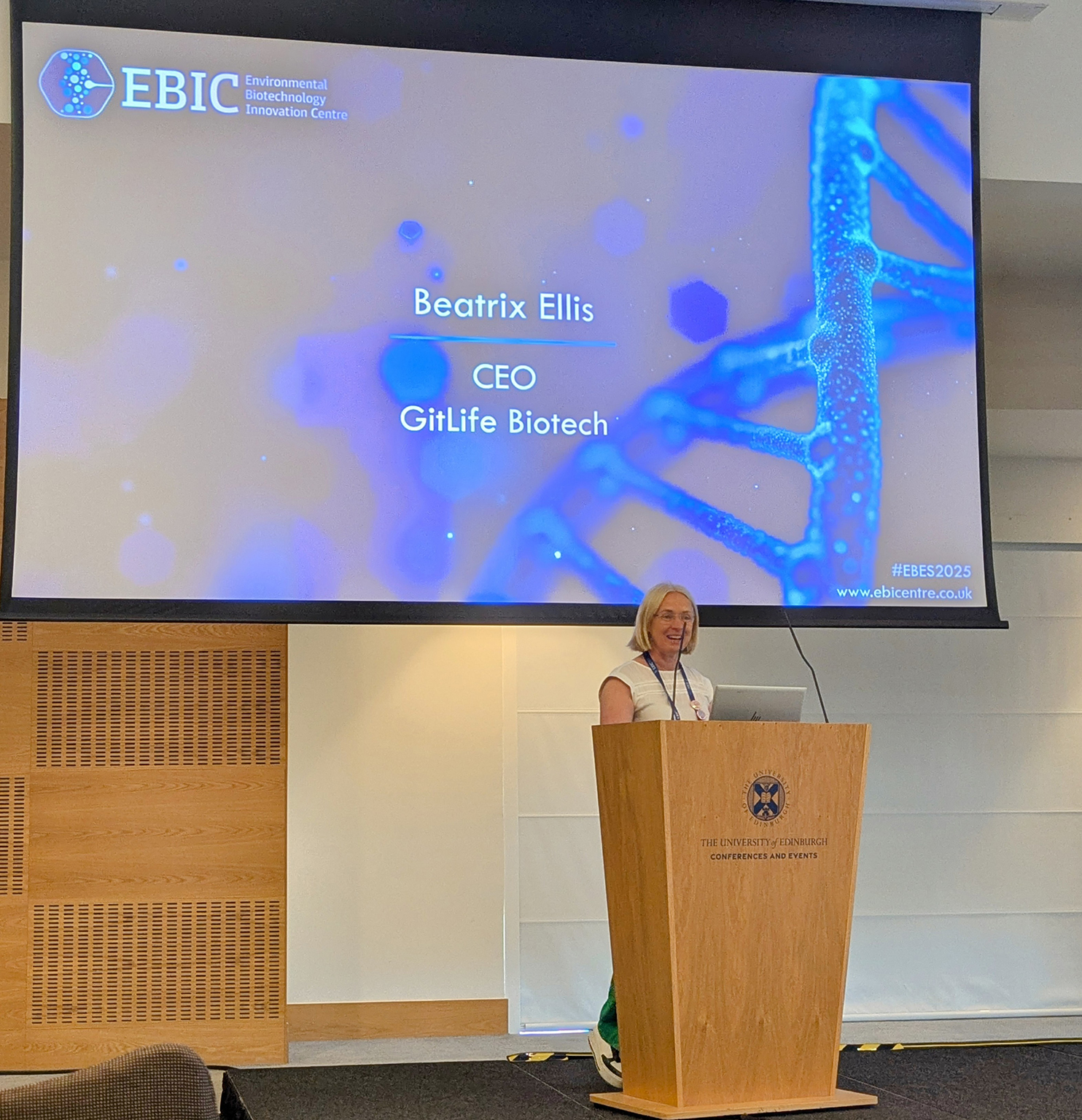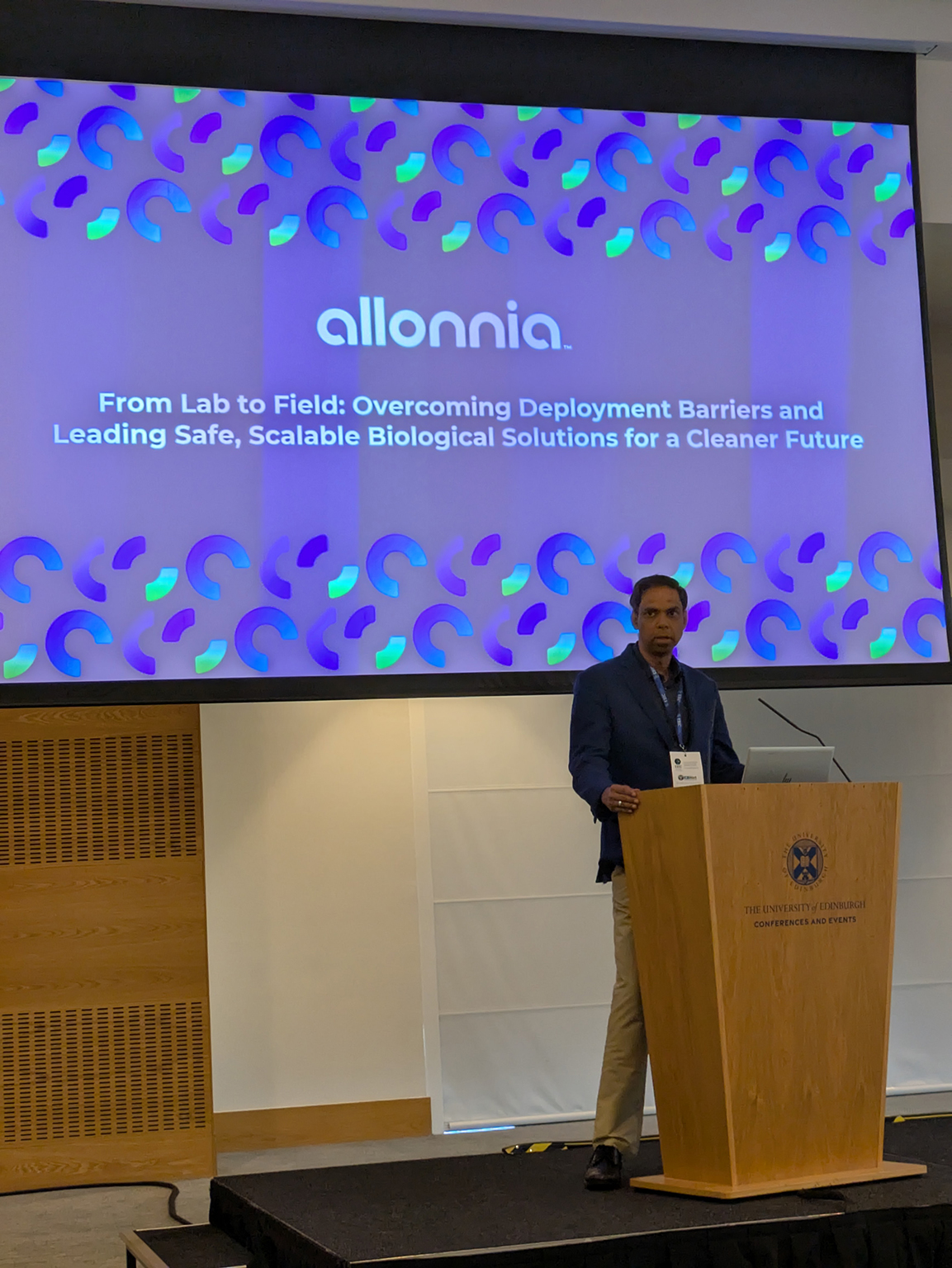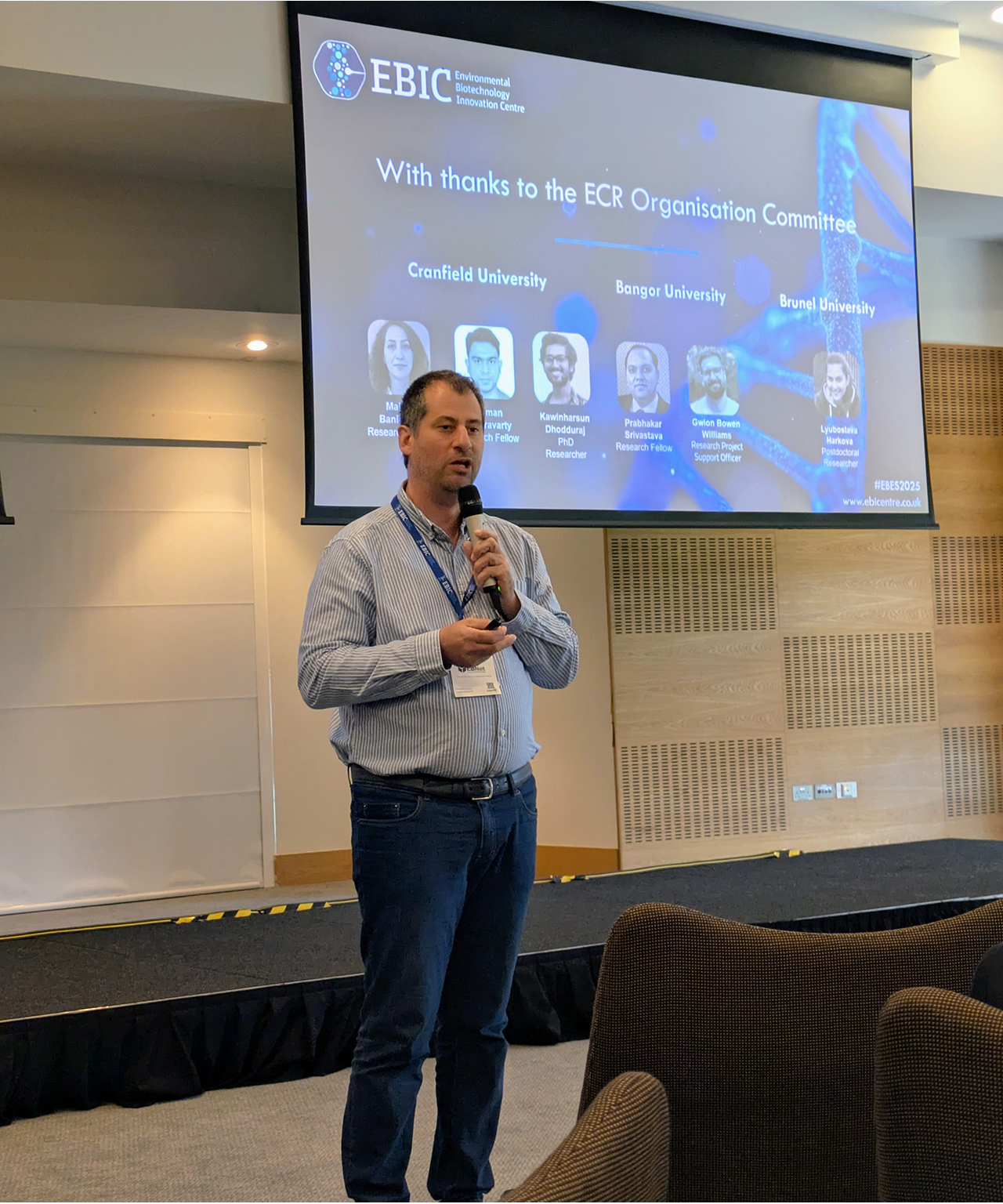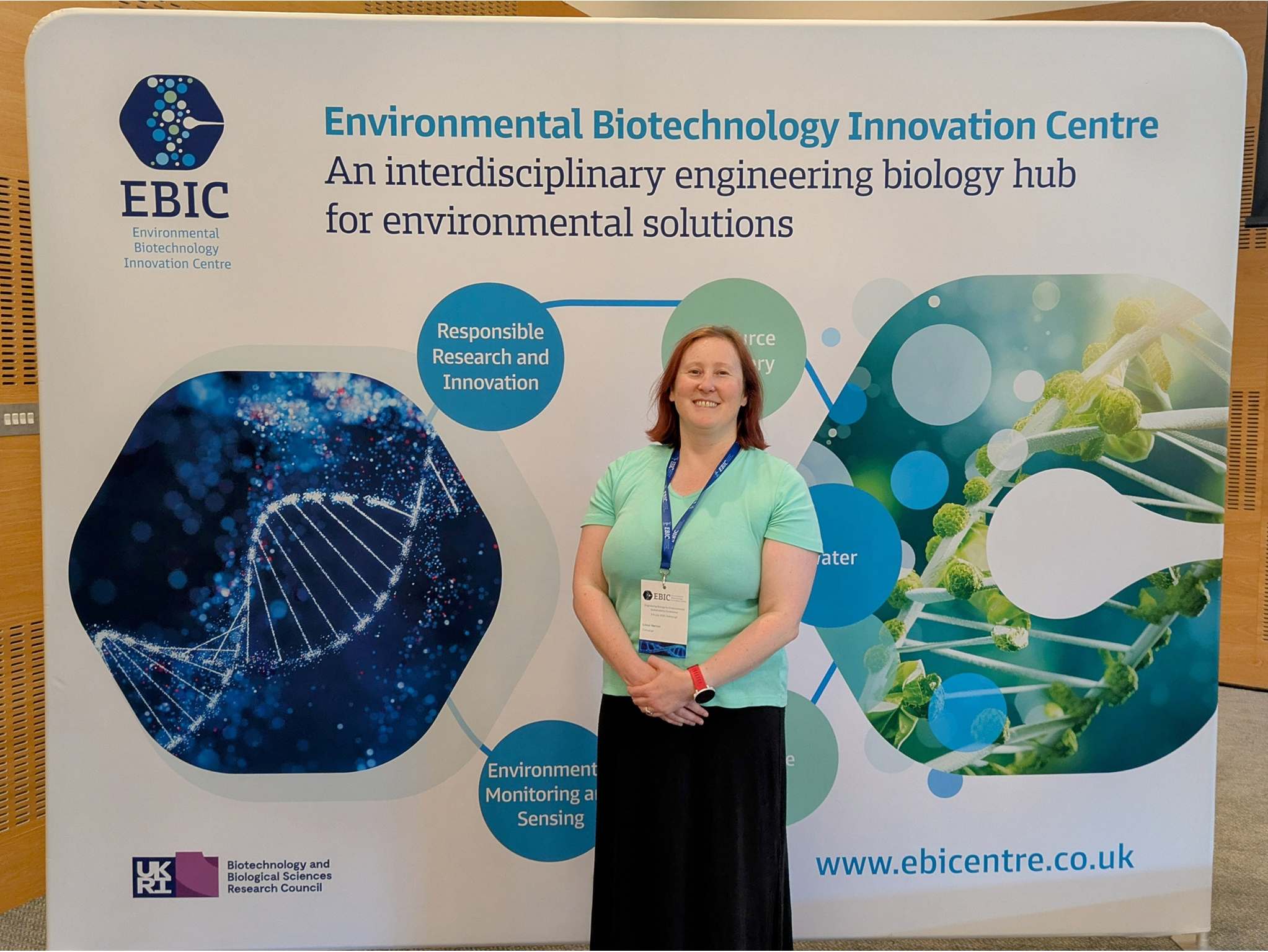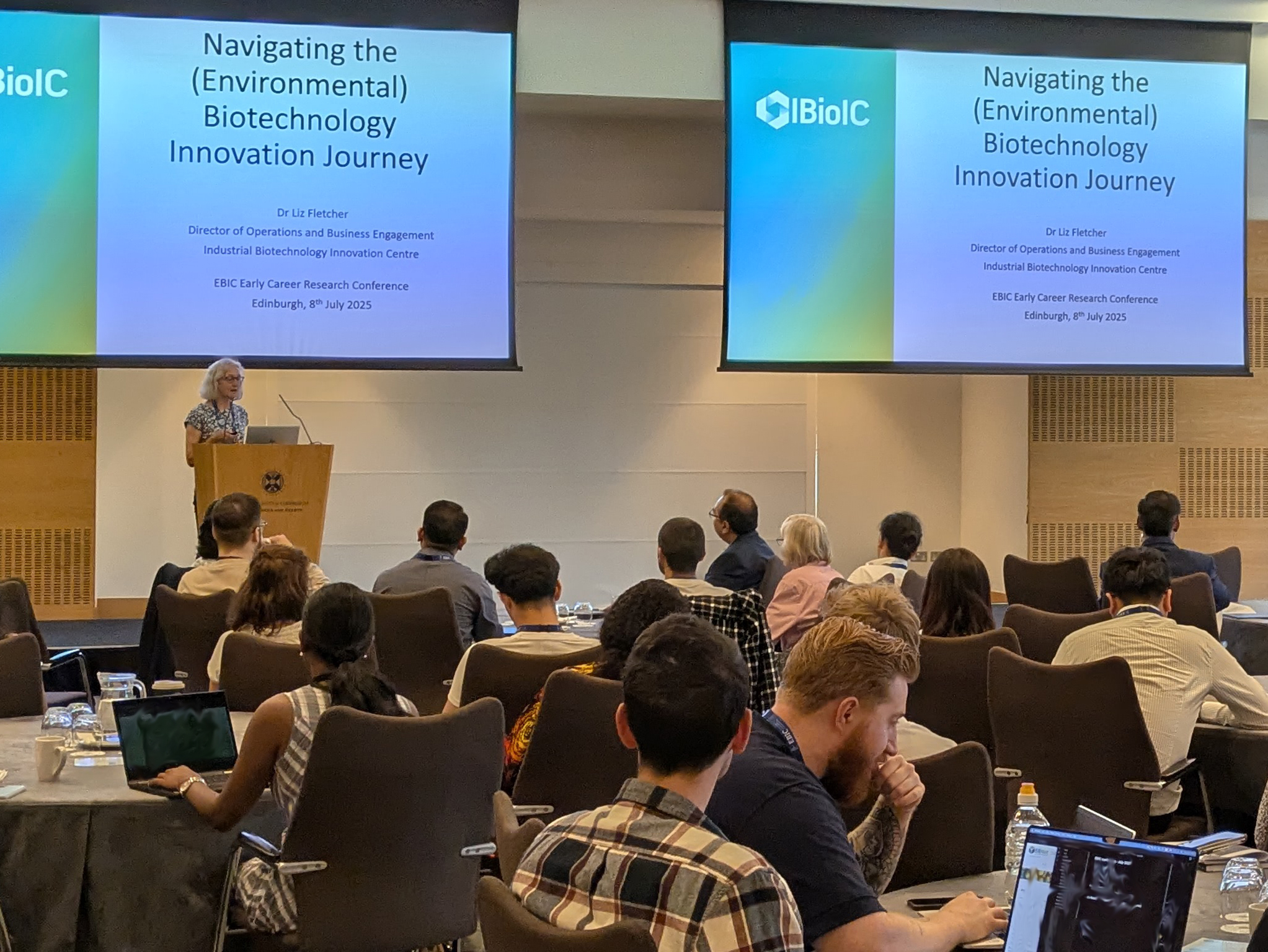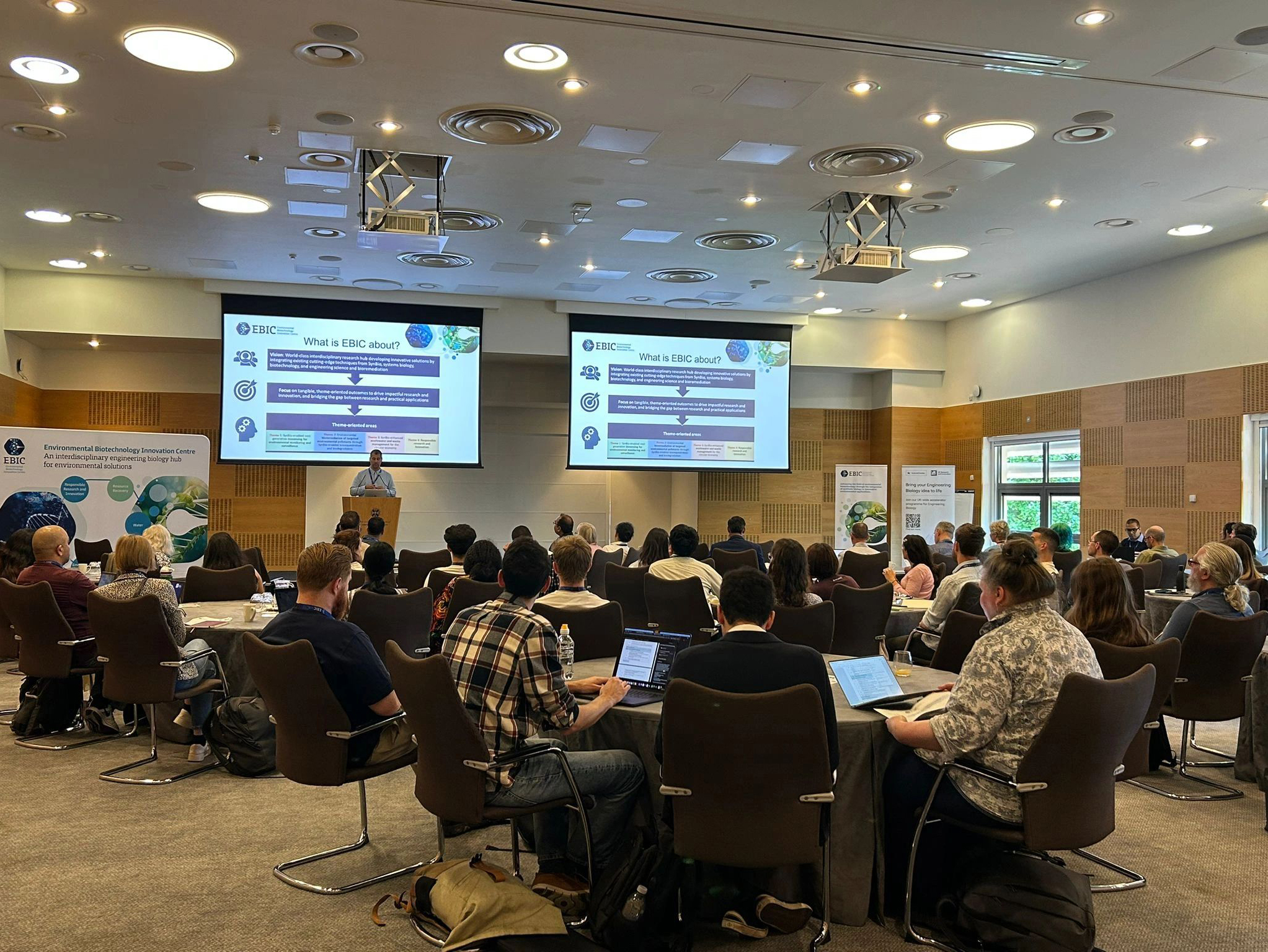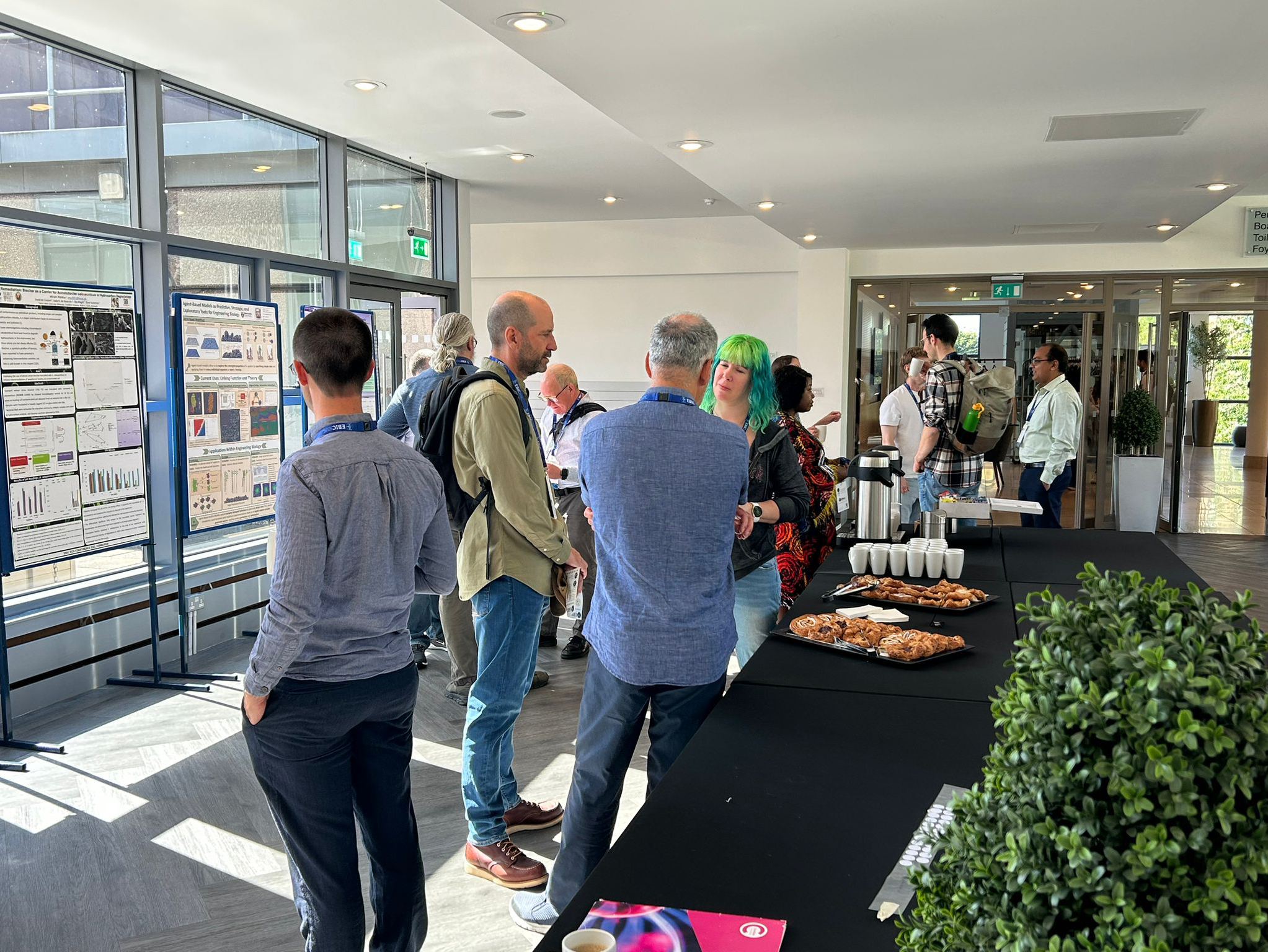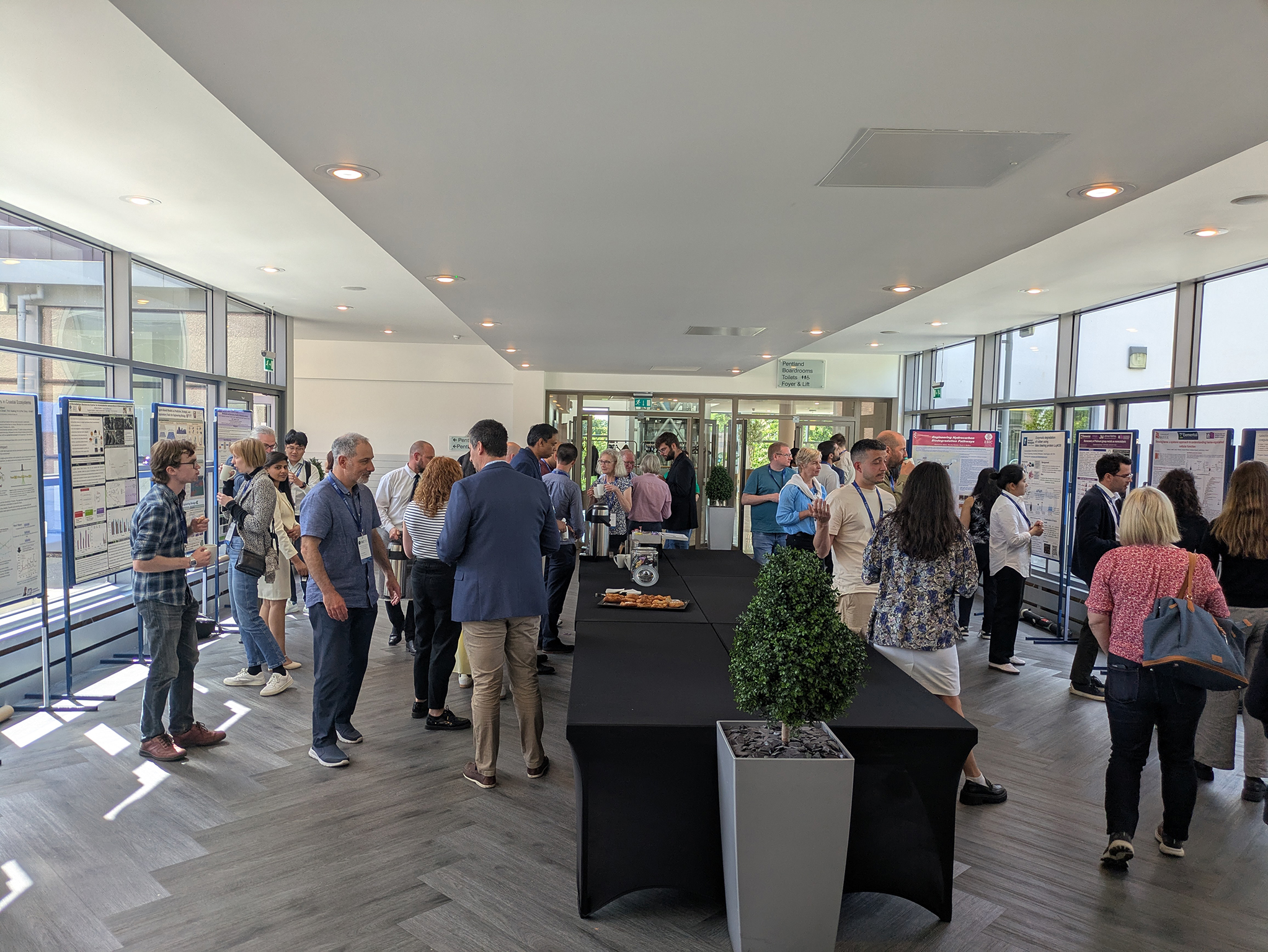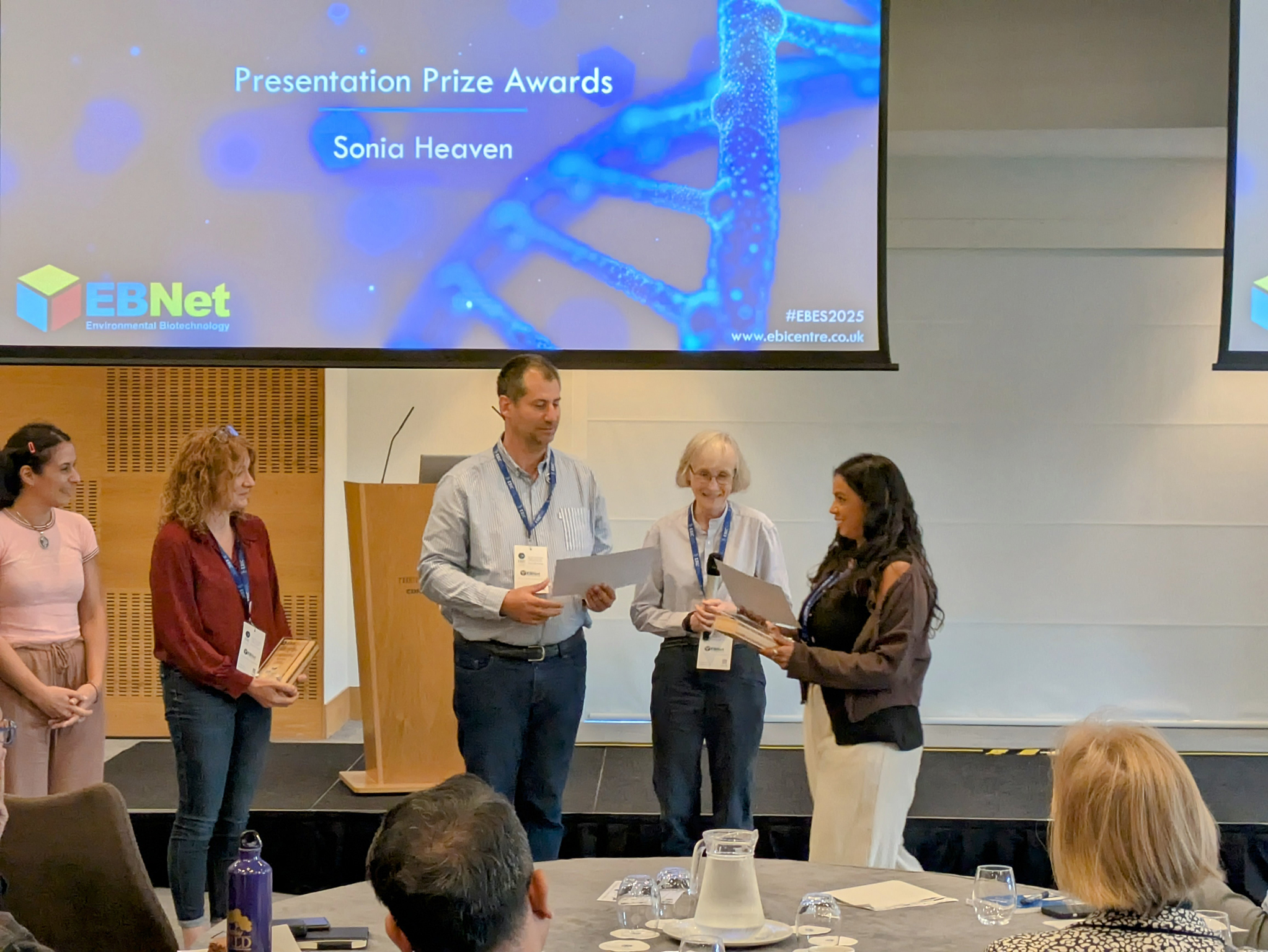Engineering biology for environmental sustainability – a bright future ahead
From the very inception of the Environmental Biotechnology Innovation Centre (EBIC) we have endued the value and importance of encouraging and showcasing the role of early career researchers (ECR) in the field of environmental biotechnology. One of our key initiatives this year was the organisation of an ECR conference – developed by ECR, for ECR” .
The conference organising committee (comprised of six ECR, our Hub Manager, and Communications Officer), worked together over the past few months to offer a 2-day conference on Engineering Biology for Environmental Sustainability’ (EBES) that was held in Edinburgh on the 8 and 9 July 2025. The principal objective of our first event of this kind was to provide early career researchers with a platform to learn from industry-based experts on engineering biology, and more broadly gain valuable insights from them into the journey of engineering biology solutions from environmental application from lab to market, share knowledge with their peers and build networks, ultimately opening new avenues for collaboration.
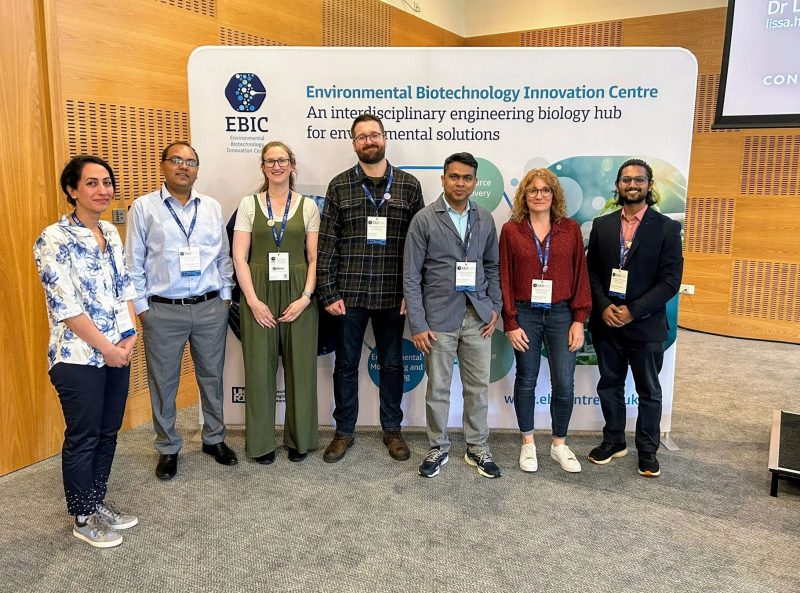
Our organising committee L-R: Mahsa Baniasadi, Prabhakar Srivastava, Nicola Heaven (Comms Officer), Gwion Williams, Dhiman Chakravarty, Kristell Le Corre Pidou (Hub Manager), Kawinharsun Dhodduraj. Not pictured: Lyuboslava Harkova.
Content
The conference organised over two days covered the prodigious topic of utilising engineering biology for environmental solutions, across the below five sessions, showcasing the work of ECR in these areas.
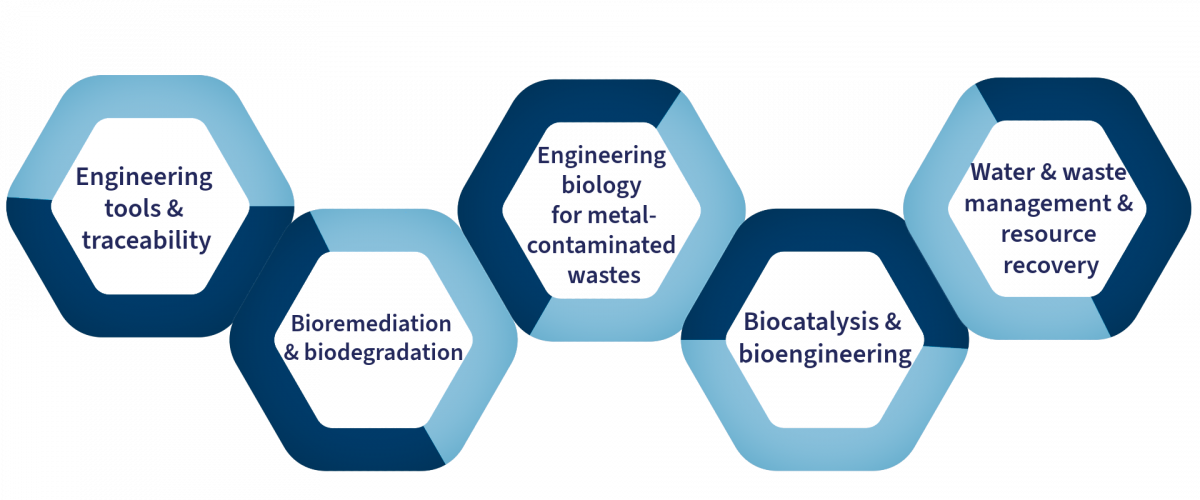
Within these sessions it was clear there were some key areas of focus amongst researchers – bioremediation; particularly within both metal recovery and dealing with plastic pollution, as well as water treatment – primarily within drinking water, with a focus on pollutants such as PFAS, pesticides and pathogens.
It was also interesting to hear discussions around cell-free engineering biology – involving the design of engineering biological parts and systems without the use of living cells – as a potential solution to current issues research challenges.
There was no shortage of discussion throughout the event, with each session followed by lively and engaging Q&A segments chaired by ECR from our organising committee. Our session chairs were never required to initiate questions—delegates were consistently eager to contribute, raising thoughtful points and continuing the conversation beyond the presentations. Offers of resource sharing were made; for example, one attendee in need of a specific engineered microbial strain was immediately connected with a team who could assist. Participants also exchanged practical advice on experimental methods and successful research pathways. It was particularly encouraging to witness the frequent emergence of potential collaborations and the overall supportive, collegial atmosphere. Notably, 100% of respondents to our post-conference survey reported forming meaningful new connections or collaborative opportunities.
![]()
If you were not already aware, EBIC is one of six UKRI backed Engineering Biology Hubs, so it was great to have representation at our conference from Elemental Hub, Glycocell and P3EB. We very much look forward to strengthening our ties and to future collaborations with all of the Engineering Biology Mission Hubs.
One of the key challenges associated with the deployment of Engineering Biology solutions from the lab to real-world, the importance of scale-up, was also widely addressed and more specifically informed by our national and international keynote speakers (right -Liz Fletcher, Dayal Saran & Beatrix Ellis) – industry experts who were able to share their wealth of experience with the delegates. This was also covered during the workshop proposed to our ECR community on – The why, how, and impact of research commercialisation –by Lissa Herron the Enterprise Outreach Manager from Converge, who are enterprise support specialists.
It was heartening to see a strong emphasis on future plans and forward thinking throughout the event, with many discussions focusing on how to translate research into real world impact. As our Director Frederic Coulon noted in his closing remarks “You are effectively the future, the next step… And it’s great to see you taking the leadership” and if the researchers in this room are any indication, the future for engineering biology in the UK is looking very bright indeed.
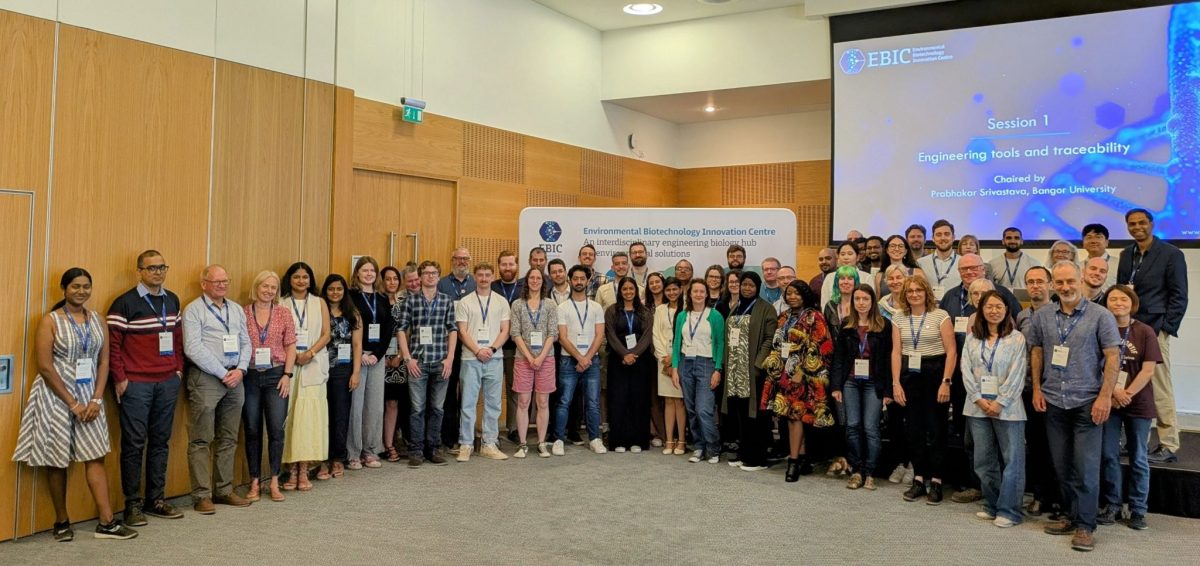
Feedback
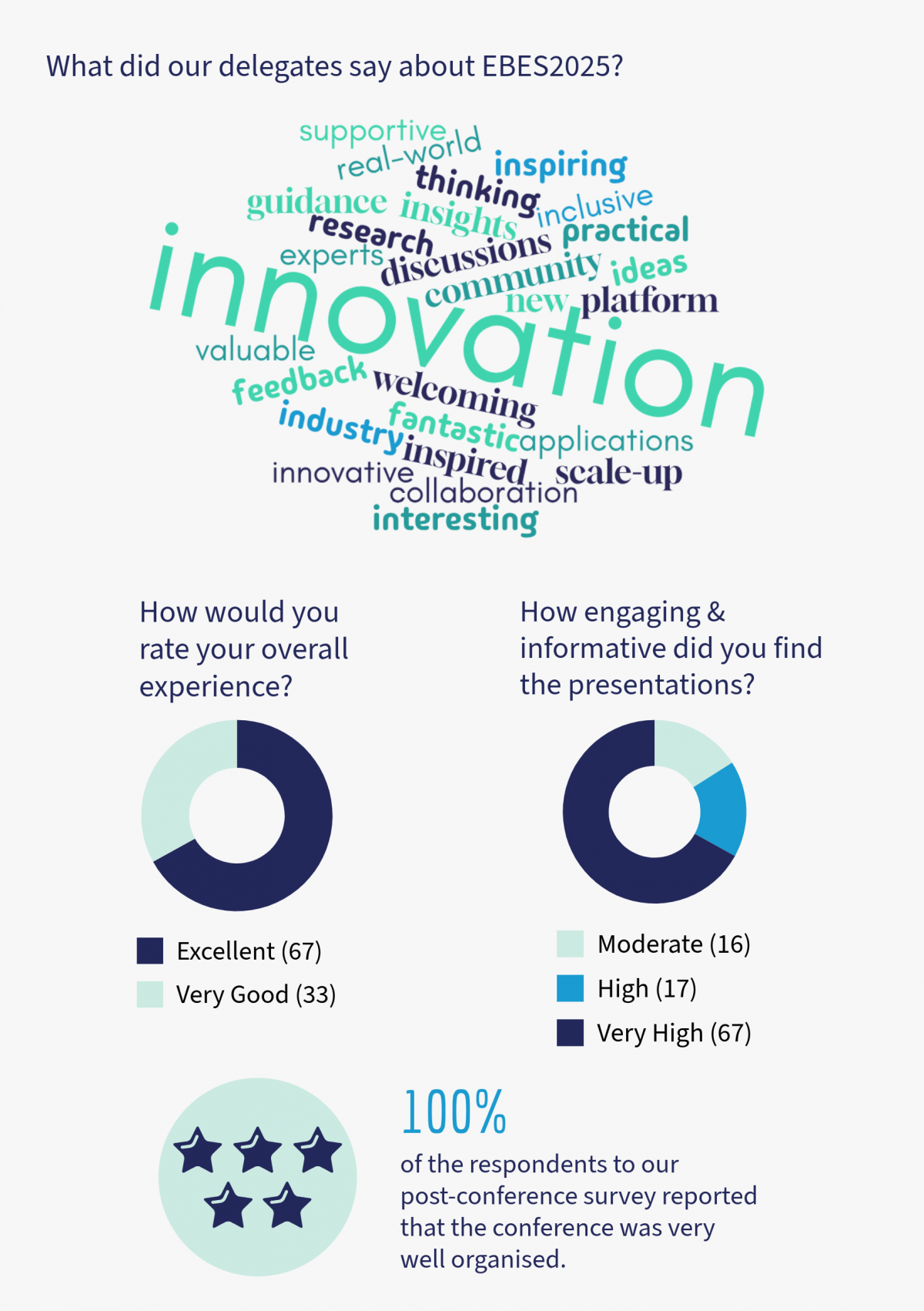
Information taken from our post-conference survey and social media feedback.
Keynote Speakers
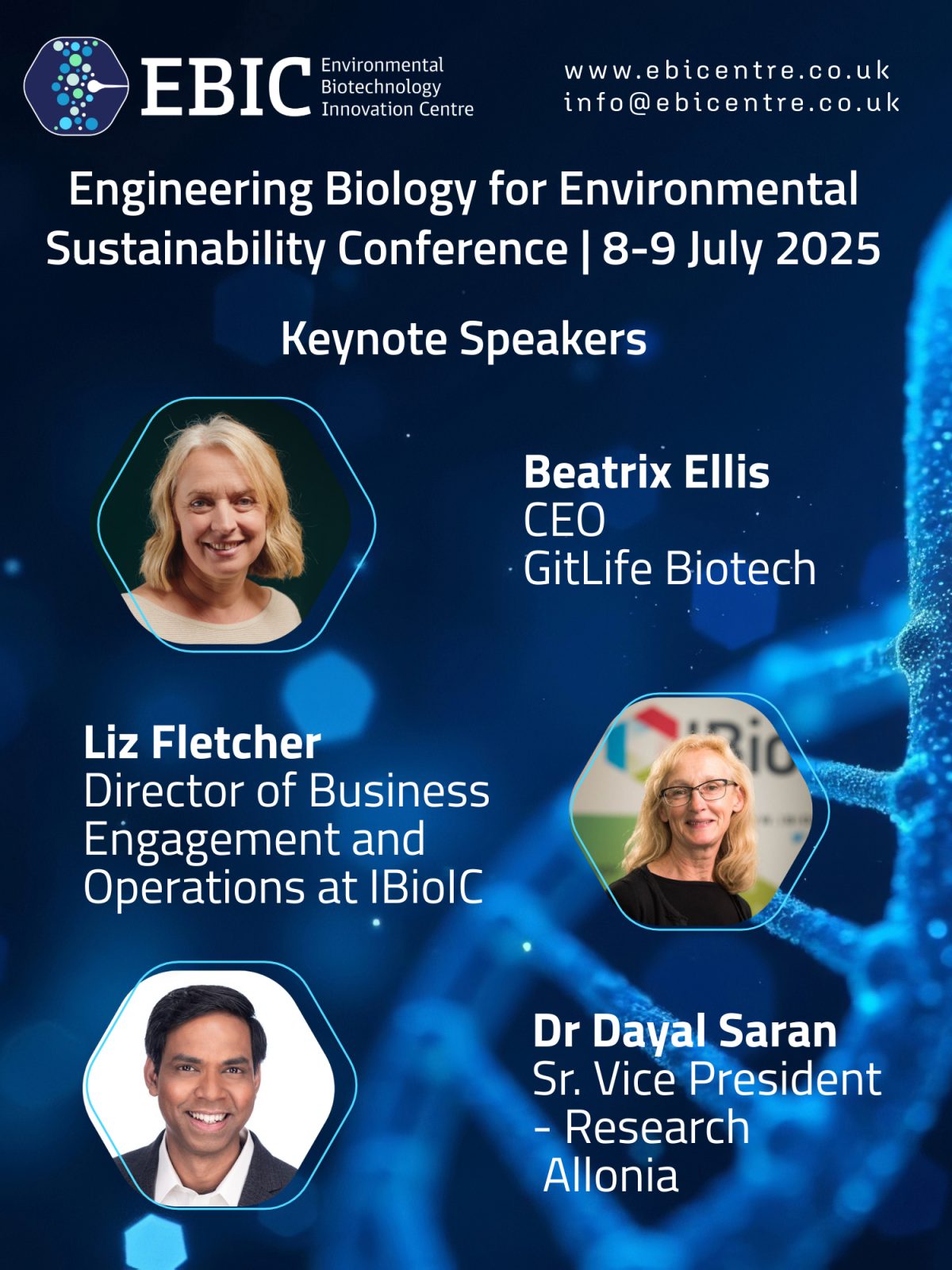
Membership
Missed the conference this year? Then why not become a member of EBIC and be kept up-to-date with new events and research updates from the world of engineering biology, sign-up below, it’s completely free to join and you can unsubscribe at any time.
Gallery
Click through the images below to see some of the photos from EBES2025!

